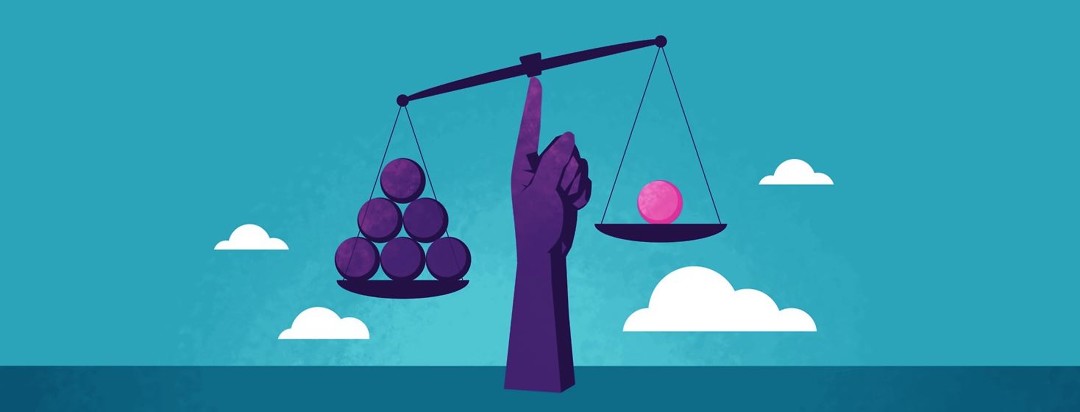The Trade-Offs of Treatment
One of the first terms that a new cancer patient often becomes used to hearing is "risk vs reward." This refers, of course, to the risk of side-effects versus the reward of feeling better or living longer. Sometimes the decisions about what type of treatment option to use are difficult, especially with the negative cultural images often associated with surgery, radiation, and chemotherapy. There are a lot of people who still believe that cancer treatment equates to "slash, burn, and poison," even though modern medical advances have improved all of these methods dramatically. But this is not to say that treatment is always easy. Trade-offs exist and should be considered seriously.
Learning from Other Patients Can Help
One way to calibrate the scale on which a patient balances the trade-offs is to read personal stories from other patients. The downside to this approach is that it may offer an outdated view of what treatment is like. Advances in cancer treatment happen very quickly these days, with new medications coming out every year and innovative technology introduced at a rapid pace. Software updates can make machines quicker and more precise on a yearly or even monthly basis, new diagnostic tools are expanding the ways in which treatment is approached, and the medical professionals who administer care are more educated now than ever before.
No matter how you consider it, there is a downside to virtually every form of cancer treatment. Some patients will have few side-effects, perhaps limited to a bit of fatigue. Others will see major changes to their skin and hair, their muscles, their sleep patterns, their ability to work or even simply take care of themselves. But most of these side-effects are limited to the duration of treatment -- those that are likely to persist even after treatment is over need to be looked at through the lens of treatment being over, but life continuing on.
I know of a gentleman in his 80s who endured radiation for throat cancer in his 60s. He has no functioning salivary glands and must be careful to drink often and avoid dry foods, but he is alive and happy twenty years after his treatment. Going into treatment it is impossible to know exactly how your body will respond or how severe any side-effects might be. We make the best guesses that we can, hope for the easiest path, cross our fingers, and jump. The job of an oncologist is not easy, and sometimes helping a patient navigate the trade-offs of treatment is challenging. Second opinions are especially useful in this regard, especially when the options may not seem particularly appealing to a patient.
Balancing Risk Vs. Reward
Risk vs reward is a very serious consideration. For most cancer patients, and progressively more so as the science of medicine advances, the rewards far outweigh the risks of treatment. But the balance of trade-offs for any treatment can only be assessed with good communication and a proper understanding of the elements involved. Fear, especially that rooted in the outdated narrative of cancer treatment, can be a patient's worst enemy. But blind optimism can be detrimental, too, potentially leading to an ordeal the patient might not be equipped to endure.
In some cases it is a gamble that the patient must decide to take, other times there is a wealth of evidence to ensure everyone that the choice is sound. Yet every patient is unique, responds differently, and there are no predictors that are likely to be 100% accurate. We have to remember that the easier path is not always the better path. Sometimes the trade-offs we make mean suffering a little more in the short-term because of the prospects of an improved quality of life and a longer opportunity to enjoy it.
Editor’s Note: We are extremely saddened to say that on October 21, 2018, Jeffrey Poehlmann passed away. Jeffrey’s advocacy efforts and writing continue to reach many. He will be deeply missed.

Join the conversation